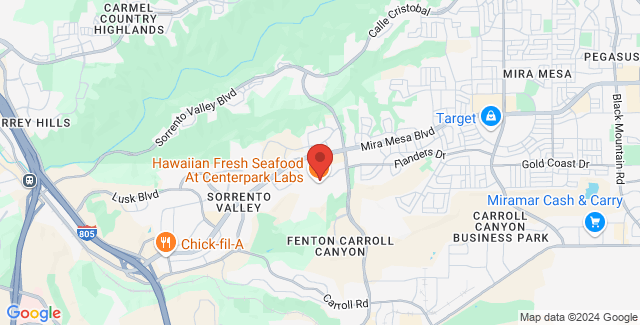Elder Abuse
Laws are in place to protect elderly individuals from neglect and abuse. However, as the elder population continues to grow, nursing homes are increasingly understaffed and unable to meet the demands of caring for patients. And, in many cases, family members are not equipped to properly care for loved ones. The risk of a loved one being mistreated does exist, and victims can obtain an elder or nursing home abuse lawyer for counsel.

How Does Elder Abuse Occur?
Elder abuse - also known as nursing home abuse or nursing home neglect - is the abuse, neglect, or exploitation of an elderly person. Elder abuse can be inflicted by:
- Family members: the abuse of the elderly by a member of his or her family.
- Institutions: the abuse of the elderly by the staff of a nursing home facility.
Types of Elder Abuse
There are several ways the elderly are abused. These include:
- Physical abuse: beatings, sexual abuse, denial of food or water, and excessive use of restraints are all ways that the elderly are physically abused.
- Psychological or emotional abuse: threats, isolation, verbal assault, and humiliation are all ways that the elderly are psychologically or emotionally abused.
- Financial abuse: cashing an elderly person's check without their permission, forging their signature, stealing their money or possessions, and abusing guardianship or power of attorney are all ways that the elderly are financially abused.
- Neglect: failing to provide food, water, shelter, clothing, and other necessities.
- Abandonment: deserting an elderly person at a public place such as a shopping mall, hospital, or nursing home is defined as abandonment.
There are many different types of elder abuse: physical abuse, sexual abuse, emotional or psychological abuse, neglect, and financial or material exploitation.
Physical Abuse
Physical abuse involves any use of force that may result in bodily injury, physical pain, or impairment. Physical abuse may include acts of violence such as striking, beating, pushing, shaking, pinching, and burning. The inappropriate use of physical restraints, drugs, and force-feeding techniques also constitutes physical abuse. Some signs and symptoms of physical abuse include: bruises, black eyes, welts, lacerations, broken bones, sprains, dislocations, internal injuries, signs of being restrained, improper use of medication, and an elder's sudden change in behavior.
Sexual Abuse
Sexual abuse is defined as non-consensual sexual contact of any kind; it also includes sexual contact with any person unable to give consent. Sexual abuse includes unwanted touching, rape, sodomy, coerced nudity, and unwanted sexually explicit photographing. The signs and symptoms of nursing home sexual abuse are bruises in the genital area, unexplained sexual diseases or infections, unexplained vaginal or anal bleeding, and torn or bloody underclothing.
Emotional Abuse
Emotional or psychological abuse involves the infliction of mental anguish, pain, or distress. This abuse may include verbal assaults, insults, threats, intimidation, humiliation, and harassment. Nonverbal acts such as using isolation to punish patients can also constitute emotional/psychological abuse. Some of the signs of this type of nursing home abuse are: emotional distress or agitation, unresponsiveness, and unusual or demented behavior.
Neglect
Neglect is defined as the refusal or failure of the nursing home to fulfill any part of its obligations or duties to a patient. Nursing home neglect frequently involves the failure of caretakers to provide life necessities such as food, water, clothing, shelter, personal hygiene, medicine, comfort, or personal safety. Signs and symptoms of neglect include malnutrition, dehydration, bedsores, poor personal hygiene, untreated health problems, and unsafe or unsanitary living conditions.
Financial Exploitation
Financial or material exploitation involves the illegal or improper use of an elder's funds, property, or assets. This can include cashing patients' checks without permission, forging signatures, stealing money or possessions, coercing or deceiving a patient to sign official documents, and the improper use of any position of fiduciary responsibility. Some possible signs of financial or material exploitation are sudden changes in banking practices, unexplained withdrawals of large sums of money, names of caretakers being added to accounts, sudden changes to wills, missing funds or possessions, discovery of forged signatures, or other unexplained financial changes.
Reporting Elder Abuse
Nursing home abuse includes abusive acts toward and inadequate treatment of individuals at long-term residential care facilities. Often involving elder abuse, nursing home abuse also includes the maltreatment of disabled people residing in such facilities.
Nursing home patients may be particularly susceptible to abuse because of physical limitations, social isolation, and/or mental disability. Nursing home abuse can take many forms, including physical, sexual, mental, and financial abuse.
Reported statistics show that nursing home abuse is already a serious problem in the United States. The actual figures are probably significantly higher than reported, however, because many abusive incidents go undocumented. All too often, victims are afraid, unwilling, or unable to report nursing home abuse.
Who Is Responsible for Reporting Elder Abuse?
There are several groups of people that, by law, must report elder abuse to the proper authorities:
- Law enforcement officers
- Adult Protective Services employees
- Health care providers
- Dependent care custodians - this includes nursing home employees and hospice care employees
Elder abuse can be reported to Adult Protective Services and other law enforcement agencies. If elder abuse is not reported, a $1,000 fine or six months in jail can be imposed.
If you or a loved one has been a victim of elder abuse or nursing home abuse or neglect, contact a nursing home abuse attorney for more information.
Prevention
There are a number of ways nursing home abuse can be prevented; here are a few tips to follow. And remember, if you suspect your loved one is a victim of nursing home abuse, don't hesitate to contact authorities and consult an elderly abuse attorney.
Qualified Applicants
To lessen elder abuse in nursing homes, the institutions need to make every effort to attract qualified applicants. This may be achieved by offering competitive wages and benefits.
Comprehensive Training
Each employee should be comprehensively trained when hired and ongoing training should be implemented. Better-trained, well-compensated employees are more likely to do good work and persevere.
Active Family Members
It is important for the family members of individuals housed in nursing homes to remain active in the care of their loved ones. Some effective precautions include:
- Visiting the facility regularly
- Building relationships with the staff
- Actively participating in the care planning process
Visit at Different Times
When visiting the nursing home, try arriving at different times so that you have an idea of what things are like during each shift. Your unexpected arrivals should also serve to keep the staff on their toes.
Get to Know Staff Members
Building relationships with staff members should give you some insight into their individual personalities. Getting involved in the planning and monitoring of your loved one's care allows you better access to information regarding their treatment. You have the right to request records that document this care.
Consult an Elder Abuse Lawyer
If you suspect that your loved one is a victim of elder abuse, it is important to contact authorities and speak to an elder abuse attorney as soon as possible. You can help protect your loved one's life and well-being.
Related to Elder Abuse
- Medical Malpractice
- Nursing Home Abuse




